Related Research Articles

The Gran Teatre del Liceu, or Liceu for short, is an opera house on La Rambla in Barcelona, Catalonia, Spain. The Liceu opened on 4 April 1847. The adjacent Liceu metro station is named after the theatre.

Conservatori Superior de Música del Liceu is a music college in Barcelona, Catalonia, Spain. It was created in 1837 with the name Liceo Filo-dramático de Montesión.
The Barcelona Symphony Orchestra and National Orchestra of Catalonia is a symphony orchestra based in Barcelona, Spain. Since April 1999, the Orchestra has had its headquarters at L'Auditori. Prior to that, from its foundation to 1998, the orchestra was resident at the Palau de la Música Catalana.

Juan Manén was a Spanish violinist and composer, born in Barcelona.

L'arbore di Diana, is an opera in two acts composed by Vicente Martín y Soler, with an original libretto by Lorenzo da Ponte. It premiered at the Burgtheater in Vienna on 1 October 1787.
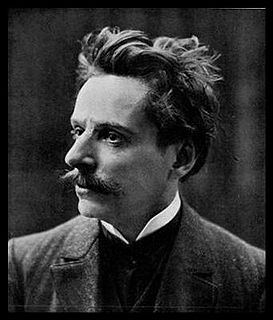
Enric Morera i Viura was a Spanish musician and composer.
The Orquestra Simfònica del Gran Teatre del Liceu is the opera orchestra of the Gran Teatre del Liceu in Barcelona, Spain. Founded concurrently with the theatre in 1847, it is the oldest orchestra still working in Barcelona, and the oldest in Spain. The orchestra also performs symphony concerts at such venues as the Palau de la Música Catalana and at L'Auditori.
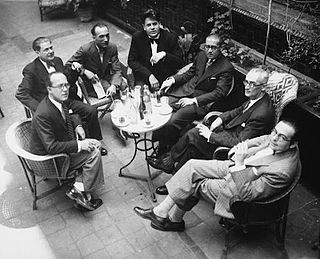
Ricard Lamote de Grignon i Ribas was a Catalan Spanish composer and orchestral conductor.

Conrado del Campo y Zabaleta was a Spanish composer, violinist and pedagogue.
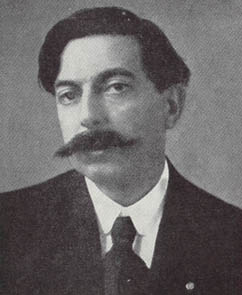
María del Carmen is an opera in three acts composed by Enrique Granados to a Spanish libretto by José Feliú i Codina based on his 1896 play of the same name. It was Granados's first operatic success and, although it is largely forgotten today, he considered it to be his best opera. At the end of its initial run in Madrid where it premiered in 1898, Queen Maria Cristina awarded Granados the Charles III Cross in recognition of his work. The opera, sometimes described as a Spanish version of Mascagni's Cavalleria rusticana with a happy ending, is set in a village in the Spanish region of Murcia and involves a love triangle between María (soprano) and her two suitors, the peasant farmer, Pencho (baritone), and his wealthy rival, Javier (tenor).
Carlos Cosías is a Spanish operatic tenor born in Barcelona, Spain.
Benet Casablancas Domingo is a Spanish Catalan composer and musicologist.
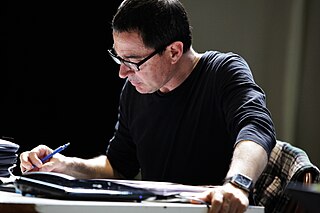
Àlex Ollé is one of the six artistic directors of La Fura dels Baus. Prominent works from its early period include Accions (1984), Suz/O/Suz (1985), Tier Mon (1988), Noun (1990) and MTM (1994), which established La Fura dels Baus as a top company among both critics and the public.
Vicente Cuyás was a Spanish composer known for his romantic opera La fattucchiera.

José Luis Turina is a Spanish composer, grandson of Joaquín Turina.

Antoni Massana i Bertran was a Spanish Jesuit priest and composer. He was maestro de capilla at the Church of the Jesuits, Sagrat Cor de Jesús, at the Col·legi Casp, Barcelona.

Olga Mykytenko is a German soprano opera singer.
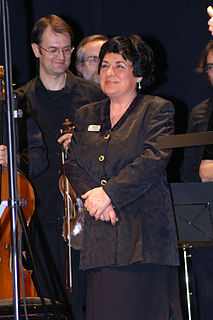
Leonora Milà Romeu is a Catalan pianist and composer.

Ramon Gener Sala Known as a Ramon Gener. He is a Spanish musician, pianist, humanist and writer. BA in Humanities and Business Sciences, he also studied piano and singing. After some years working as a baritone he left the profession and started his new stage as a lecturer and musical communicator. In 2011 he became the host of the television program Òpera en Texans. Later he directed and hosted This is Opera (2015), This is Art and 200; una noche en el Prado (2019).
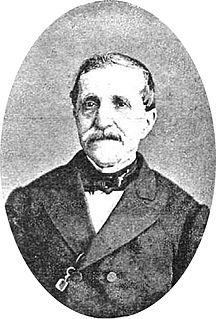
Marià Obiols, also known as Mariano Obiols, was a Catalan composer, conductor, and professor of music. He served as the music director of the Gran Teatre del Liceu in Barcelona from its founding in 1847 until his death. A protégé of Saverio Mercadante, he composed three operas, the cantata Il regio imeneo which inaugurated the Liceu theatre, art songs, chamber music, and several pieces of sacred music. His vocal music was largely Italianate in style, reflecting his years of study in Italy as well as the influence of Mercadante. As a professor at the Conservatori Superior de Música del Liceu, Obiols influenced the development numerous singers, composers, and conductors and wrote books on piano and solfège methods which became standard texts at the conservatory.
References
- ↑ "Staatstheater Darmstadt - Juana". Archived from the original on 2013-12-13. Retrieved 2013-04-16.
- ↑ "La cabeza del Bautista :: Alquiler de producciones :: Servicios :: Gran Teatre del Liceu". Archived from the original on 2013-07-19. Retrieved 2013-04-16.
- ↑ "About Us".
- ↑ "Escuela de Superior - Profesorado archivos".